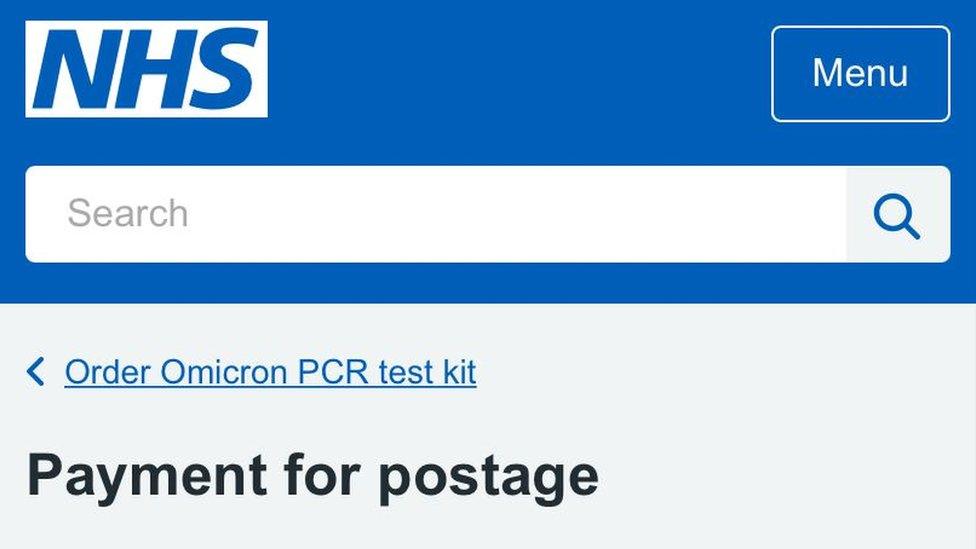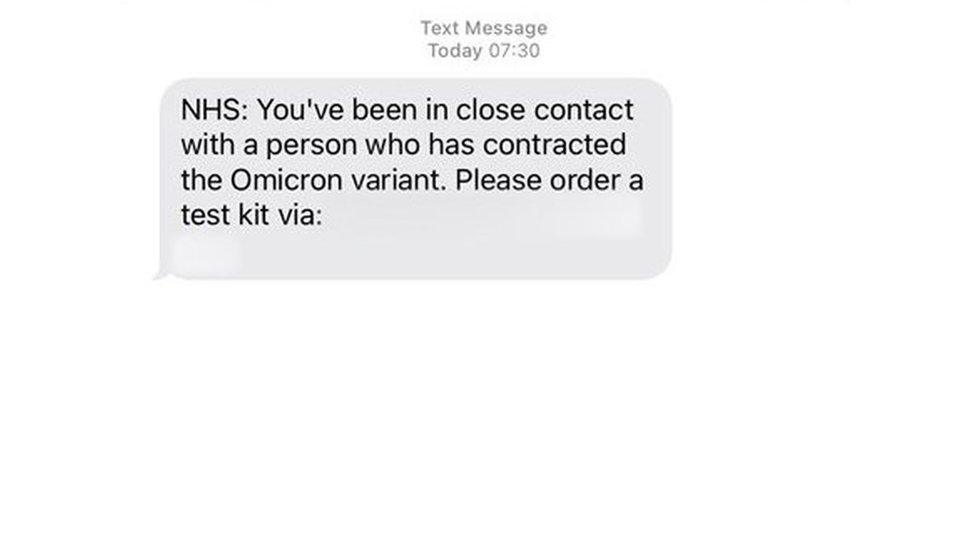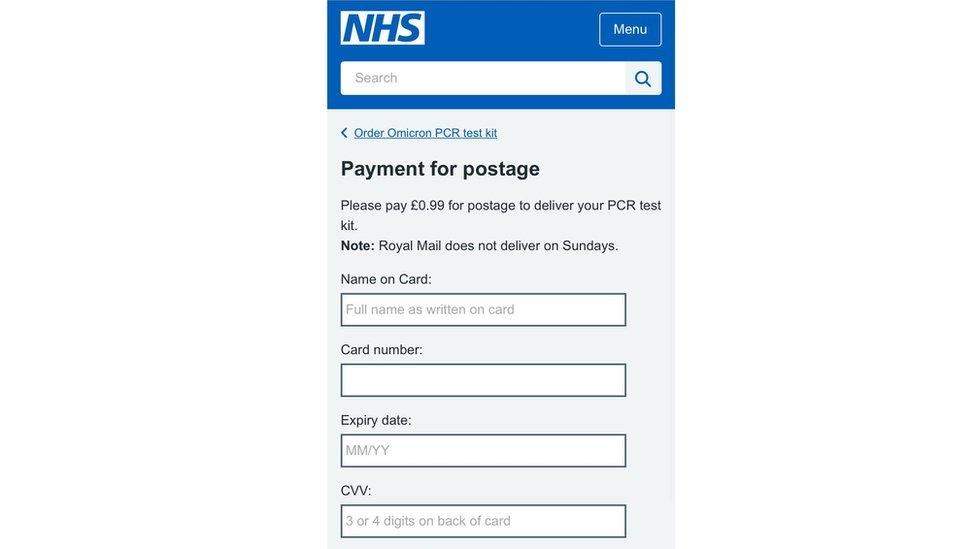NHS warns of scam Covid-test texts
- Published

The NHS is warning about widespread scam text messages telling recipients they have been in close contact with a Covid case.
"We've seen reports of fake NHS text messages about ordering Omicron Covid-19 test kits," it tweeted.
Close contacts of people who have tested positive are no longer advised to test., external
The aim of the messages appears to be harvesting financial and personal information.
Allow X content?
This article contains content provided by X. We ask for your permission before anything is loaded, as they may be using cookies and other technologies. You may want to read X’s cookie policy, external and privacy policy, external before accepting. To view this content choose ‘accept and continue’.
Several BBC staff have received similar messages linking to newly registered websites associated with dozens of others with names indicating they have also been used in scam Covid test-ordering schemes.
Twitter users have sought advice after receiving similar texts, external.

A screenshot of one of the messages
If clicked on, the link in the messages takes the recipient to a fake NHS page asking for personal and financial information.
In its alert, the NHS says it will "never ask for bank details, so please be aware of suspicious messages".
Most people are no longer advised to test for Covid and are ineligible for free tests - but some some pharmacies and shops, external sell them.

The National Cyber Security Centre told BBC News: "Cyber-criminals are opportunistic and sadly continue to exploit concerns around the coronavirus to trick people into sharing their financial or personal details."
In 2020, trying to combat phishing attacks, the NCSC helped develop the Suspicious Email Reporting Service with the City of London Police.
"As a result, we have received 12 million red flags from the public to potential phishing attacks - leading to more than 80,000 scams being removed from the internet," it said.